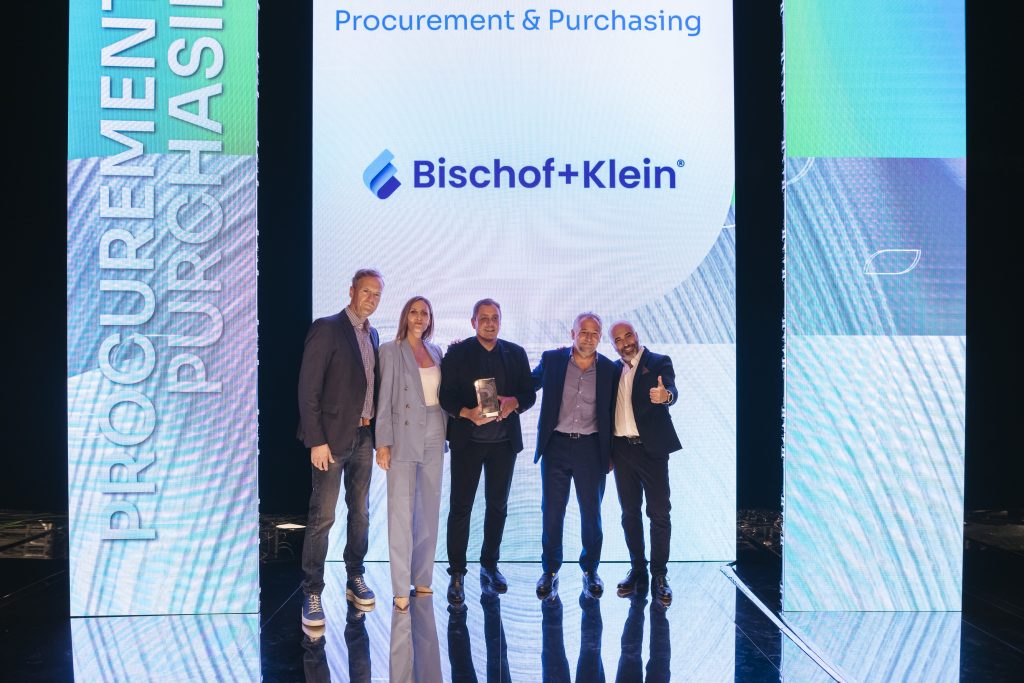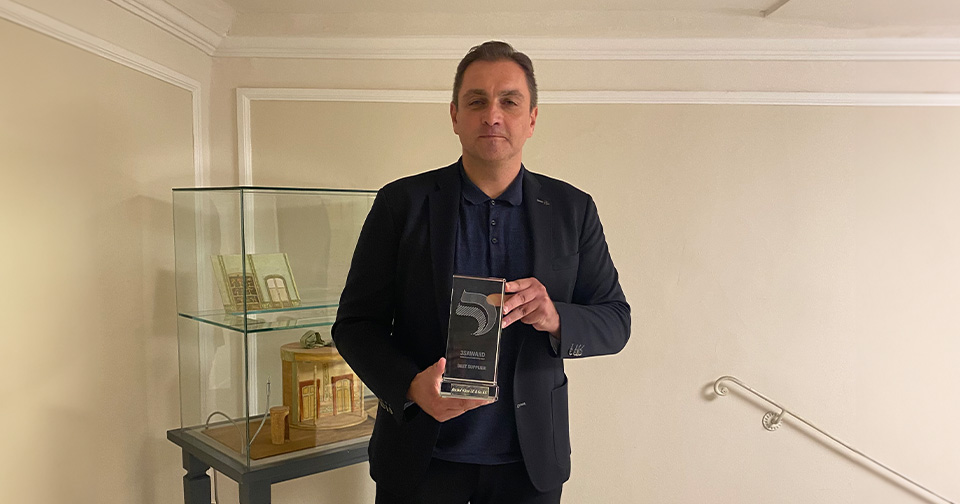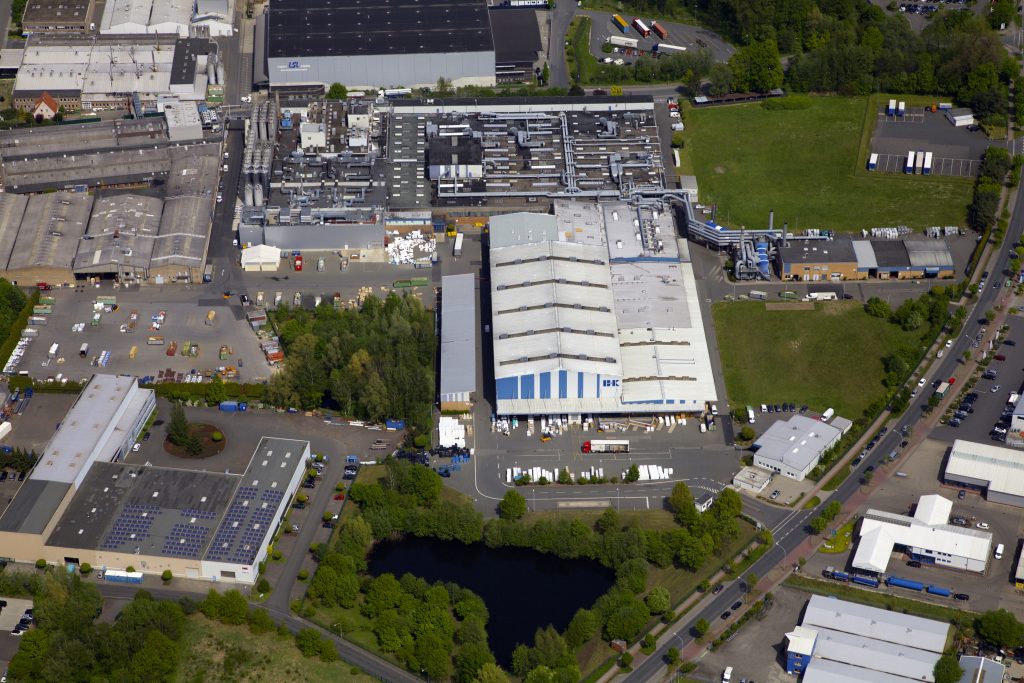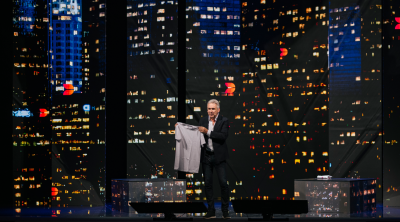Future catches up with Bischof+Klein, to discuss the keys to the company’s sustainability success in the wake of its win at the 3SAward earlier this year
Based in Europe across Germany, Poland, France, and the UK, Bischof+Klein has helped meet Sofidel’s packaging requirements for over 15 years. The secret to their successful partnership, says Nico Fehlhauer, key account manager for Bischof+Klein, is “open and transparent communication, reliable business development, and trust in both our sustainability strategies.”
It was these very sustainability credentials which saw them honored by Sofidel as Best Supplier – Procurement and Purchasing at the 2023 Sofidel Suppliers Sustainability Award (3SAward) in Lucca, Italy, for their rigorous adherence to Sofidel’s TenP Paper criteria, a qualification inspired by the Ten Principles of the United Nations Global Compact. Through TenP, Sofidel asks their suppliers to self-assess their environmental and social business practices and grades suppliers as ‘excellent’, ‘sustainable’, or ‘non-sustainable’. In winning the award, Bischof+Klein was recognized as one of the most environmentally, socially, and economically sustainable of Sofidel’s suppliers based on this questionnaire.
The company was delighted to be recognized: “[winning the award] gives us the motivation to improve our business,” says Fehlhauer. “We want to remain the benchmark supplier.”
“[Winning the award] gives us the motivation to improve our business. We want to remain the benchmark supplier”
Nico Fehlhauer, key account manager, Bischof+Klein
Five decades of sustainable enterprise
Fehlhauer notes that Bischof+Klein has had a sustainability strategy implemented since the 1980s, well before ESG became a buzzword to contemporary business. “I’m sure in the 80s it was not a typical business strategy to be really sustainable,” he explains. “We consider the whole supply chain and not just energy waste management. It’s also of course about environmental governance and social points.”
The biggest challenge facing the packaging industry when it comes to sustainability is government regulations, Fehlhauer believes. The German government in Bischof+Klein’s native land, and the European Union (EU) itself, have introduced regulatory frameworks that businesses must meet to classify themselves as sustainable. Bischof+Klein are themselves audited by independent environmental experts in accordance with the EU’s Eco-Management and Audit Scheme (EMAS).
The company is also an active member of organizations such as CEFLEX (Circular Economy for Flexible Packaging) and the Association for Plastics Packaging and Films; for the latter, they shared their expertise on environmentally friendly packaging at an ‘Eco Design’ roundtable discussion.
Packaging and the future of the planet
But can packaging, an industry that mostly creates products designed to be thrown away, ever be truly sustainable? Fehlhauer thinks so, pointing out that packaging in itself can reduce carbon emissions in general, for example in food packaging where the product helps extend the shelf life of produce.
But at the heart of their sustainable enterprise, Fehlhauer says, is the old maxim ‘reduce, reuse, recycle’. For Sofidel, Bischof+Klein have taken several initiatives to minimize waste, firstly by reducing film thickness for all their products whilst maintaining quality. Bischof+Klein are also working to increase the percentage of reused materials in their packaging, a total that Felhauer estimates currently sits near 60%. By 2024, more than 70% of Bischof+Klein products will be recyclable, and they hope to increase this to 100% in the near future, thereby creating a circular packaging economy.
Bischof+Klein are not just leading in environmental issues; they are also a company with a strong sense of social responsibility. In the wake of sudden inflation in Germany last year, Bischof+Klein workers received a pay rise in line with inflation thanks to Bischof+Klein’s membership of a trade union which required employers, employees, and associations to renegotiate contracts in the wake of changing economic stimuli. The company also leads cultural workshops and makes sure to interview employees on a yearly basis to maintain job satisfaction and stay informed on any concerns.

A business which listens and evaluates
But what about the future? What do Bischof+Klein want to achieve next?
“We would like to follow our current business strategy to be the best sustainability partner benchmark in terms of ESG and always be state of the art to improve our business in the future,” states Fehlhauer.
Looking ahead, Bischof+Klein’s strategy is twofold: “We are making product production sustainable. That means commitment for the future through protection of resources, substitution of fossil raw materials and development of recyclable products,” explains Fehlhauer. “The second part is environmental management. We systematically protect the environment through determination and evaluation of the relevant aspects and measurements of environmental performance.”
“We are making product production sustainable. That means commitment for the future through protection of resources, substitution of fossil raw materials and development of recyclable products”
Nico Fehlhauer, key account manager, Bischof+Klein
Transparent communication and a firm sense of responsibility are the keys to Bischof+Klein’s strategy moving forward. With these principles to guide them, there is no reason they won’t continue to be honored with many more 3SAwards in the future.
Further details:
For more information visit here: https://www.bischof-klein.com/en/







